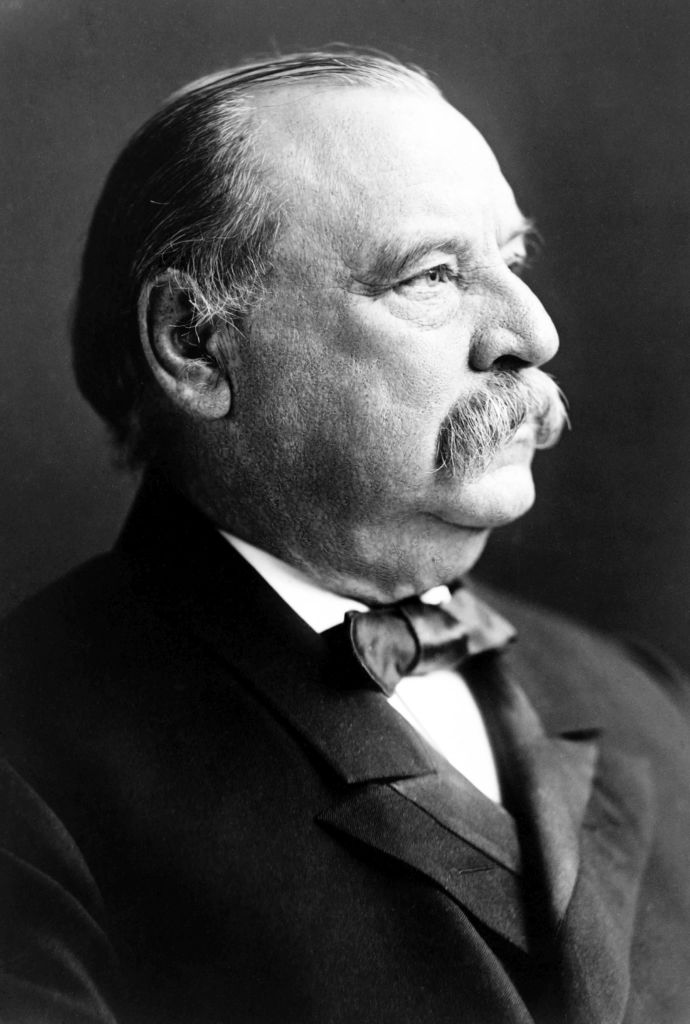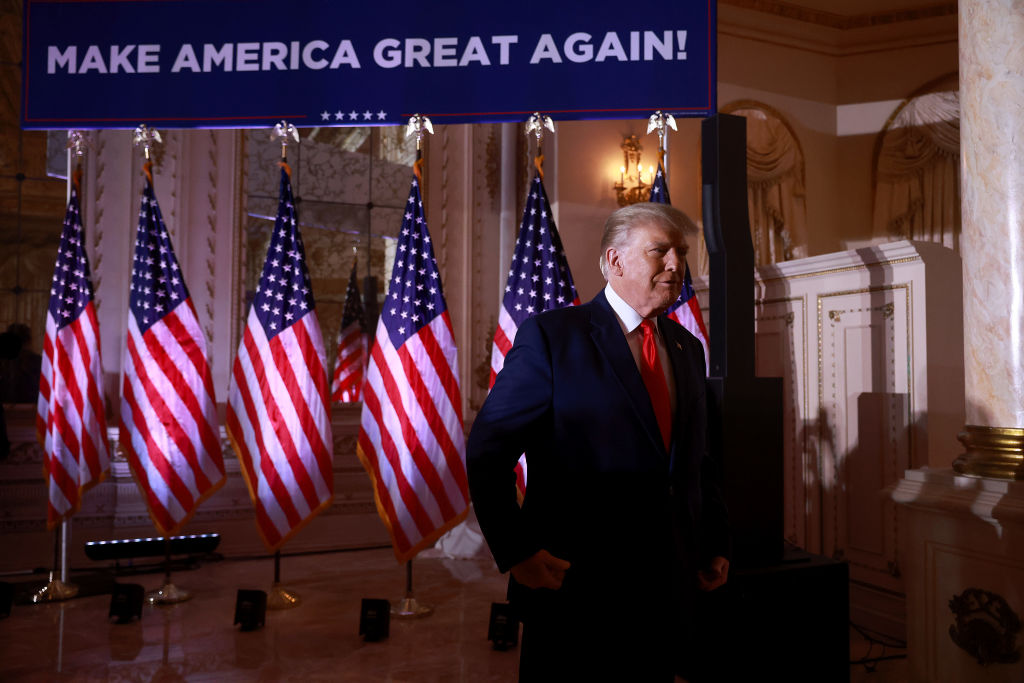As was widely anticipated, former President Donald Trump has officially announced that he is throwing his red MAGA cap in the ring as a contender in the 2024 presidential election. Speaking from his residence in Palm Beach, Florida, the now-candidate Trump said, “America’s comeback starts right now… In order to make America great and glorious again, I am announcing tonight my candidacy for president of the United States.”
Setting out an optimistic vision for the future, 45 declared: “I am running because I believe the world has not yet seen the true glory of what this nation can be.” He continued:
“We will heal our divisions and bring our people back together through incredible success. We will shatter the forces of tyranny, and we will unleash the glories of liberty for ourselves and for our children and for generations yet to come. America’s golden age is just ahead.”
 As the 45th president attempting to become the 47th, Trump is seeking to emulate what only one other has managed before. And strangely enough, the historical parallels between Trump and Grover Cleveland are too enticing to ignore.
As the 45th president attempting to become the 47th, Trump is seeking to emulate what only one other has managed before. And strangely enough, the historical parallels between Trump and Grover Cleveland are too enticing to ignore.
Brash Contenders Both?

Grover Cleveland (Photo by: Pictures from History/Universal Images Group via Getty Images)
With what seems like one of the many historical happenstances that make the topic of presidential elections so fascinating, the pugnacious Republican appears to be following a similar trajectory to that of Cleveland, one of the pro-business “Bourbon Democrats.” Having first entered the Oval Office in 1885, the 22nd president broke with convention by winning a second term in 1892, after losing the presidency four years prior.
Both being somewhat brash and burly New Yorkers, the two presidents launched their campaigns to the tune of dismantling the DC swamp, Trump through massive deregulation and attempts to remove wasteful bureaucracies, and Cleveland via limiting what he saw as pointless appointments. Certainly, their methods and means were different, but you might say one was a little bit country and the other a little bit rock and roll.
The two presidents display other similarities. They were uniquely hounded by opposition party-controlled media, they are well-known as fundraising juggernauts, and both men had their share of salacious scandals to contend with.
But it is in the sphere of policy that their resemblances take shape.
A Rose By Any Other Name…
The changing Overton window of what is considered “acceptable” in polite society has its political parallels. Democrats of yesteryear were far more likely to campaign on ideas that would today be considered the realm of the GOP. In fact, border control was just a few years ago an issue that former Presidents Bill Clinton and Barack Obama had little problem espousing. And the same holds true for the pledges and promises of the 22nd and 24th president, Grover Cleveland.
Foreign escapades have long been the hallmark of American presidents, but not so for the two men in question. Both were dedicated non-interventionists who believed what happens overseas stays overseas. Coincidently, the two presidents each pulled out of internationalist agreements set by their predecessors that committed the US to foreign involvement; Trump and the Paris Climate Accords, Cleveland and the Nicaragua Canal Treaty.
The Comeback Kids?

(Photo by Joe Raedle/Getty Images)
So what was it that allowed Grover Cleveland to make a successful comeback in 1892 and defeat incumbent President Benjamin Harrison? Since assuming office, Harrison had overseen the decline of the American economy; the national cash surplus had all but disappeared (see the equivalence with the Strategic Petroleum Reserve), and the embryo of the Panic of 1893 had taken hold.
Essentially, it was the economy, stupid.
When leaving the White House after his first term in office, it is reported that Frances Cleveland – Grover’s much younger spouse (another parallel!) – said to a staff member, “Now, Jerry, I want you to take good care of all the furniture and ornaments in the house, for I want to find everything just as it is now, when we come back again.”
F. Scott Fitzgerald once wrote, “there are no second acts in American lives.” This has become a ubiquitous adage but was seemingly not a position the author continued to believe. In a contrasting essay, he wrote, “I once thought that there were no second acts in American lives, but there was certainly to be a second act to New York’s boom days.” Perhaps Donald Trump, like Grover Cleveland before him, is hoping for his own political boom.



